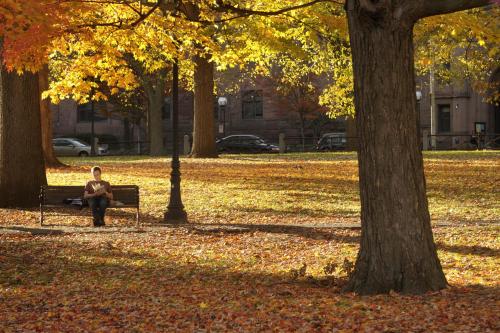- For the latest statewide COVID-19 restrictions, see the City of New Haven website.
- For the latest University Covid-19 guidelines, see the Yale University Covid-19 website.
Life as an undergraduate living off campus involves challenges and rewards. Off-campus living during a global pandemic requires strict adherence to current safety guidelines and health regulations.
Life as an undergraduate living off campus involves challenges and rewards. Off-campus living during a global pandemic requires strict adherence to current safety guidelines and health regulations.
When you elect to live off campus, you accept the responsibility of living as an accountable citizen in your community. Part of this responsibility involves conscious consideration of your neighbors and their families – especially those who may be at greater risk for Covid-19.
It’s important to remember that though you are a Yale student, you are also a resident of the city of New Haven. Like those who live and work in New Haven, there’s the expectation that you are not the source of noise complaints, public intoxication or an ambulance call to your apartment/house, or trash that is improperly discarded or piled up.
Repeated complaints, violations, etc. could result in eviction, losing your ability to renew your lease next year, a citation, fine or arrest.
Though you may have Yale emergency alerts, you can also sign up for alerts from the city of New Haven Emergency Alert website. Following the City of New Haven’s Twitter and Facebook pages are recommended for the important news and updates. The city’s 211 page also has helpful links regarding food pantries, utility assistance, emergency shelters and more.
To find out more about Yale College-specifics regarding Covid-19, please see our COVID-19 Announcements and FAQs page.
Note: For information on leases, rights & responsibilities, a helpful apartment checklist & more information, see the State of Connecticut Landlord and Tenants Rights and Regulations (PDF). Be sure to discuss with your landlord how security deposits are handled, as well as what factors could result in a deduction from your deposit.
To begin your off-campus housing search, first consider:
COVID-19 has impacted the way we now view real estate/housing options. Ask the landlord or property manager how he/she/they is handling showings. Clarifying your expectations with the landlord before you arrange to view a listing can make the process smoother.
Scroll down for a list of websites to begin your housing search. Once you’ve identified potential apartments, make an appointment with the landlord or management company to see the property. During your viewing, take pictures of the unit before you move in.
Choosing the right roommate is critical to having a positive off-campus living experience. Before agreeing to live together, we urge you to candidly discuss your:
It is very difficult and expensive to break a lease early, so absolutely be proactive and honest before deciding to live together, and address issues as soon as they arise in order to avoid misunderstandings and conflict.
The average monthly cost of a one-bedroom apartment in New Haven is approximately $1,100. Prices for two- and three-bedroom apartments vary significantly depending on the type apartment and landlord policy. Rent in the downtown area is typically higher than in other neighborhoods. Most landlords will require you to put down a security deposit (typically the same amount as your monthly rent or more).
A budget should include (but is not limited to):
The budgeting website Mint offers several different budget templates to choose from. These templates offer a transparent, concrete way to keep track of spending and to make plans for such contingencies as changes to income or other financial challenges.
In addition to understanding the importance of creating and adhering to a budget, Yale’s financial literacy webpage provides practical, clear information that will assist you in taking control of your finances. As a current Yale student, you also have free access to LIT Financial Education Program – a program that teaches students about money matters pertinent to both off-campus living and life after graduation.
Another useful resource is the Getting Financial Help webpage on the Yale College site.
Beyond these sites, you may also find walking around New Haven or asking a friend can be helpful. Yale students frequently find housing by asking friends, classmates, and peers. Many homes in New Haven are multi-family homes with units to rent. It is common for owners to rent apartments in their homes by displaying a “For Rent” lawn sign on the property. While not listed online, these types of properties are a viable option for students.
